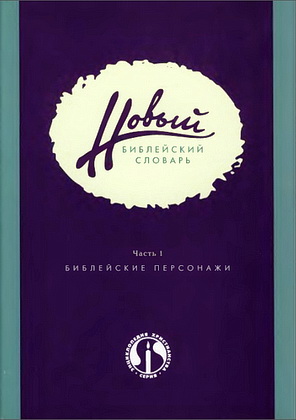
Preuss – Old Testament Theology – Volumes I and II
Radical change and debate characterize much of the scholarly investigation of the Old Testament at the present time. It is therefore a risky venture to present in the current environment a "Theology of the Old Testament." This risk, however, is outweighed, at least in part, by the fact that descriptions of Old Testament theology have a duty to respond to the questions and problems of their own time. In addition, undertaking this risk is also justified by the contemporary study of theology. It has been over thirty years now since the appearance of the significant theological work of Gerhard von Rad, while Walther Zimmerli, in producing his "Outline" of Old Testament theology, wished eventually to write a more detailed description but did not live to do so. What is needed now is a new, comprehensive overview of the witnesses to Old Testament faith that takes into consideration both the present changes in Old Testament research and the positions of the author in regard to these matters. Therefore, references, citations, and bibliographical information are necessary, even as one would find in an introductory text. To print biblical quotations in full of course would be impossible. They will have to be looked up by the reader. In addition, in this kind of presentation, repetitions not only cannot be avoided, they are even intended.
The present volume is aware of its limitations. This also will be true when the second one, God willing, soon appears. Much of what is currently new in Old Testament study will be mentioned, even if the author does not always agree. Other scholars might well choose to set forth their own modifications, corrections, and different orientations. In addition to the purpose of comprehending as fully as possible the witness of the world of the Old Testament, the present work has two other particular interests. One is the quest to discover the essential structure of the faith of scripture that resides both behind and in the Old Testament. However, Old Testament Israel cannot be properly understood apart from its own historical and social context. Another interest is a brief description of this social and cultural environment that is becoming ever clearer to us. It is hoped, of course, that these side glances at the religious and historical environment of the Bible will not take precedence over the major objective of setting forth its theology. Nevertheless the particularities and unique features of Israel's faith at times may be brought out more clearly by comparison to the other religions of the surrounding cultures.
The manuscript of the present volume was finished in the fall of 1990. Scholarly literature that either was written or came into my possession after that time could not be included. However, one work that supports, modifies, and expands much of what is said here ought to be mentioned: J. Assmann's substantial book, Ma'at: Gerechtigkeit und Unsterblichkeit im Alten Agypten (Munich, 1990).
Horst Dietrich Preuss – Old Testament Theology – Volume I
Louisville, KY: Westminster John Knox Press, 1995. – 388 pp. - (Old Testament Library)
ISBN 0-664-21844-X (v. 1 : alk. paper)
Horst Dietrich Preuss – Old Testament Theology – Volume I – Contents
Translator's Preface
Preface
-
Chapter 1. Setting the Stage: The History, Methodology, and Structure of a "Theology of the Old Testament"
- 1.1 The Posing of the Question
- 1.2 The History of Scholarship
- 1.3 Setting the Boundaries for Methodology
- 1.4 Concerning the Center of the Old Testament
- 1.5 The Present Inquiry
PART ONE. LAYING THE FOUNDATION
-
Chapter 2. An Overview of the Old Testament's Statements about Election
- 2.1 Yahweh's Acts of Election
- 2.2 The Verb "to Elect"
- 2.3 Election of the Individual
- 2.4 Election of the People
- 2.5 The Semantic Field
- 2.6 Historical Emphases
- 2.7 Election and History
- 2.8 The Theology of Election
- 2.9 Further Questions
-
Chapter 3. The Election and Obligation of the People
- 3.1 The Exodus Event as the Primal Election
- 3.2 Israel as an Exodus Community
- 3.3 Israel as a People and as a Community of Faith
- 3.4 Community and Individual
- 3.5 Sinai Tradition and Sinai Covenant
- 3.6 Duty and Law: The Theological Basis of the Law of God
- 3.7 Moses: His Place and the Problem of the Founding and Revealing of a Religion
- 3.8. Yahweh's Will Requires Responsibility
- 3.9 Israel's Land
- 3.10 Yahwehas Warrior and Yahweh War
PART TWO. YAHWEH AS THE SUBJECT OF THE HISTORICAL ACTS OF ELECTION
-
Chapter 4. The God Who Elects: His Names and Titles. His Acts and His Powers of Activity. Statements about His "Nature"
- 4.1 The Names of God
- 4.2 The Appellations of God
- 4.3 Yahweh as King
- 4.4 Yahweh's Poweis of Activity
- 4.5 Yahweh Reveals Himself
- 4.6 Yahweh as Creator
- 4.7 Old Testament Statements about the "Nature" of Yahweh
-
Chapter 5. The World of God and the World Distant from God
- 5.1 Yahweh's Places of Dwelling
- 5.2 The Ark
- 5.3 The Tent (of Meeting)
- 5.4 Yahweh's Court: The Cherubim, Seraphim, and Angels
- 5.5 Demons
- 5.6 Satan
- 5.7 The Kingdom of the Dead
Abbreviations
Notes
Select Index of Biblical Citations
Index of Subjects
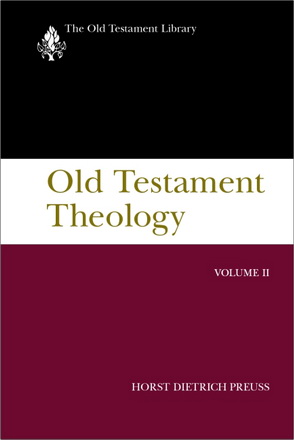 Horst Dietrich Preuss – Old Testament Theology – Volume II
Horst Dietrich Preuss – Old Testament Theology – Volume II
Louisville, KY: Westminster John Knox Press, 1996. – 452 pp. - (Old Testament Library)
ISBN 0-664-21843-1 (v. 2 : alk. paper)
Horst Dietrich Preuss – Old Testament Theology – Volume II – Contents
Preface
PART THREE. THE CONSEQUENCES OF AND FURTHER THINKING ABOUT PRIMAL ELECTION: ADDITIONAL OBJECTS OF THE HISTORICAL, ELECTING ACTS OF YHWH
-
Chapter 6. The Narratives about the Ancestors
- 6.1 Historical Background?
- 6.2 The Milieu of the Narratives about the Ancestors
- 6.3 Concerning the Problem of the "God of the Ancestors"
- 6.4 Ancestral Religion and El Religion
- 6.5 YHWH Religion and the Promises to the Ancestors
- 6.6 The "Ancestors" in Later Texts
-
Chapter 7. Kingship and Messianic Hope
- 7.1 Concerning the Book of Judges
- 7.2 The Origin of the Monarchy and Saul
- 7.3 David and Solomon
- 7.4 The Criticism of Kingship
- 7.5 "Royal Ideology" in the Old Testament
- 7.6 The Positive Evaluation of Kingship and the Royal Psalms
- 7.7 The Messianic Hope
-
Chapter 8. The Temple and the City of God (the So-called Zion Tradition)
- 8.1 Jerusalem—Zion—the City of God
- 8.2 Jerusalem in the History of Old Testament Faith
- 8.3 The "Zion Tradition"
- 8.4 Jerusalem in Old Testament Future Expectation
-
Chapter 9. Priests and Levites
- 9.1 Priests and Levites as "Chosen"
- 9.2 Concerning the History and Functions of the Old Testament Priesthood
- 9.3 Concerning the History and Functions of the Levites
- 9.4 Literary Forms from the Sphere of Priestly Ceremony
- 9.5 Concerning the Theological Significance of Priestly Ritual
-
Chapter 10. The Prophets
- 10.1 The Election of Israel and the Message of the Prophets
- 10.2 "Prophecy" in Israel's Religious Environment
- 10.3 Old Testament Prophecy before Amos
- 10.4 The "Word of YHWH" in the Prophets
- 10.5 The Different Kinds of Texts in Prophetic Preaching
- 10.6 Judgment and Salvation
- 10.7 "True" and "False" Prophets
- 10.8 Concerning the Message of the Individual Writing Prophets
PART FOUR. THE RESULTS AND CONSEQUENCES OF ELECTION EXPERIENCED IN HISTORY
-
Chapter 11. The Israelite and His Relationship to God (Anthropology)
- 11.1 Human Being as Creature (Biological and Biographical)
- 11.2 Anthropological Terms
- 11.3 Genesis l:26ff.: Humanity as the Partner of God
- 11.4 Humanity according to the Witness of Different Groups of Texts
- 11.5 The Language of Humans
- 11.6 Pain and Fortune
- 11.7 Life, Death, Resurrection
- 11.8 Humanity before God
- 11.9 Sin and Guilt 170
- 11.10 Atonement and Guilt 177
-
Chapter 12. The Life of the Elect (Foundational Questions for Ethics and Ethos)
- 12.1 Election and Obligation
- 12.2 Ethos and Morality
- 12.3 An Ethos Shaped by YHWH
- 12.4 An Ethos Related to Community
- 12.5 Strength for Moral Activity
- 12.6 Some of the Contents of the Ethos
- 12.7 The Place for Animals
- 12.8 The Ethics of Wisdom Literature
- 12.9 The Limits of Old Testament Ethics
-
Chapter 13. The Worship of Israel (Cult)
- 13.1 Concerning the Evaluation of the Old Testament Cult
- 13.2 Cult—History—Revelation
- 13.3 Concerning the History of Old Testament Worship
- 13.4 The Festival Calendar and the Festivals
- 13.5 Sabbath and Circumcision
- 13.6 Sacrifice
- 13.7 Prayer
- 13.8 The Cult in the Wisdom Literature
- 13.9 The Theological Location of the Old Testament Cult
-
Chapter 14. The Future of the People of God (Expectations concerning the Future, Eschatology, Apocalyptic)
- 14.1 Concerning the Conceptions of Future
- 14.2 The Question concerning the Fundamental Root of Old Testament Eschatology
- 14.3 Yahwistic Faith and Future Expectation
- 14.4 Statements of Hope
- 14.5 Concerning the Development of Old Testament Expectations of the Future
- 14.6 Rejection by YHWH?
- 14.7 Judgment
- 14.8 Remnant
- 14.9 The Day of YHWH
- 14.10 The Expectation of Salvation and the Promise of Salvation
- 14.11 The Origins of Old Testament Apocalyptic
- 14.12 Old Testament Apocalyptic (the Book of Daniel)
-
Chapter 15. The Chosen People of God and the Nations
- 15.1 A Comprehensive Overview of Election
- 15.2 A Historical Look at "Israel and the Nations"
- 15.3 The Foreigner and the Stranger
- 15.4 The Destruction of the Nations (Judgment)
- 15.5 The Nations as the Spectators of YHWH's Salvific Activity
- 15.6 Salvation Also for the Nations —"Mission"?
- 15.7 The Servant of God
- 15.8 The Openness of the Old Testament
Abbreviations
Notes
English Translations of Selected German and French Books
Index of Hebrew Words
Select Index of Biblical Citations
Index of Subjects
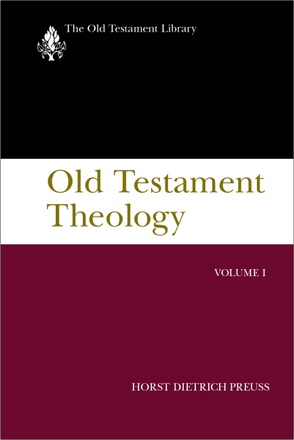
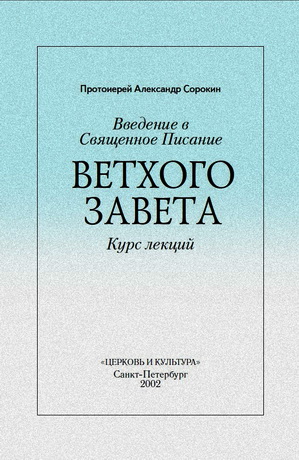
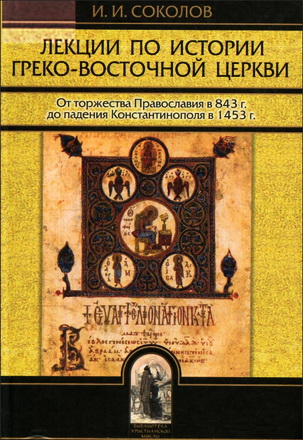


Комментарии (2 комментария)
спасибо
Хороший двухтомничек! Обратите внимание: он построен по тематическому принципу, а не по авторским теологиям.